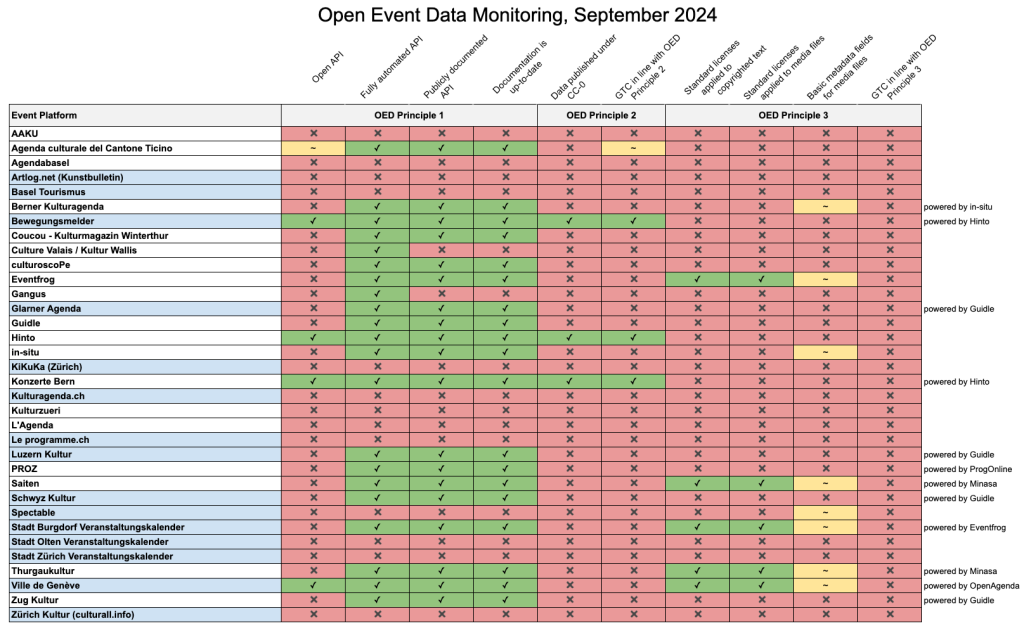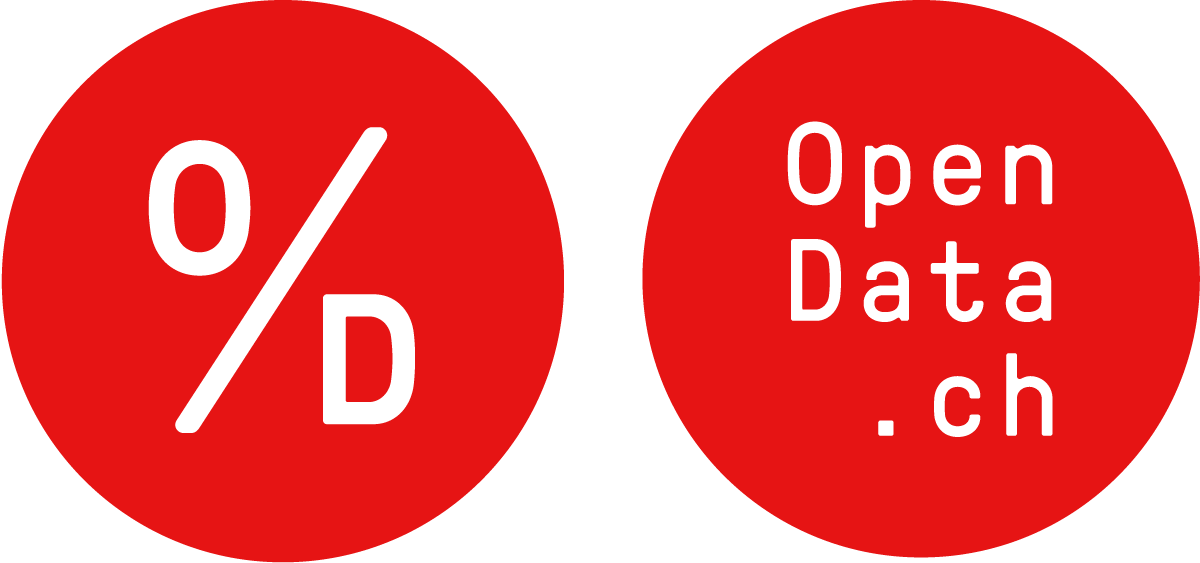Open Event Data Monitoring, September 2024
- Event Data
- GLAM
- Tourism
We have updated and expanded our Open Event Data Monitoring and are happy to publish its second version. The monitoring is based on principles 1-3 of the Open Event Data Manifesto (Version 1.0). To assess the conformity of the various event data platforms based on objective criteria, the principles contained in the Open Event Data Manifesto have been operationalized. Detailed information about the assessment criteria can be found here.
Compared to the first edition published in May, this new version contains a larger set of event platforms (highlighted in blue). Furthermore, we have added the status “partially fulfilled” in order to be able to give a slightly more gradual view of the implementation of the different principles and reflect partial progress being made.
If you spot any errors in the assessment or if you would like us to include your platform in future assessments, please let us know.

The assessment shows that there is still significant progress to be made when it comes to the implementation of the Open Event Data Principles. This applies specifically to the opening of the APIs (first column) and to all the indicators relating to licenses.
This version of the Monitoring has been presented at the Fachtagung “Konsolidierung von Veranstaltungskalendern” on 16th of September in Lucerne (the full presentation can be found here). Participants showed interest in better understanding the Monitoring and its underlying principles and expressed the importance of having such a tool to get an overview of the state of implementation.
Having produced two initial editions of the Monitoring in the existing logic and structure, the goal now is to take this tool a step further and improve several aspects:
- Expand the monitoring to include principles 4 and 5 and to reflect agreements on best practices reached in the Open Event Data Working Group.
- Revise the structure and make clearer distinctions between providers/solutions for event data aggregation and specific uses of these solutions (e.g. event calendars)
- Define the handling of “edge cases”
- Develop the monitoring towards a community tool (push vs. pull)
We plan on implementing these changes and publishing a next version of the Open Event Data Monitoring before the end of this year. Anybody interested in contributing to the development of best practices is welcome to join our Open Event Data Working Group.
